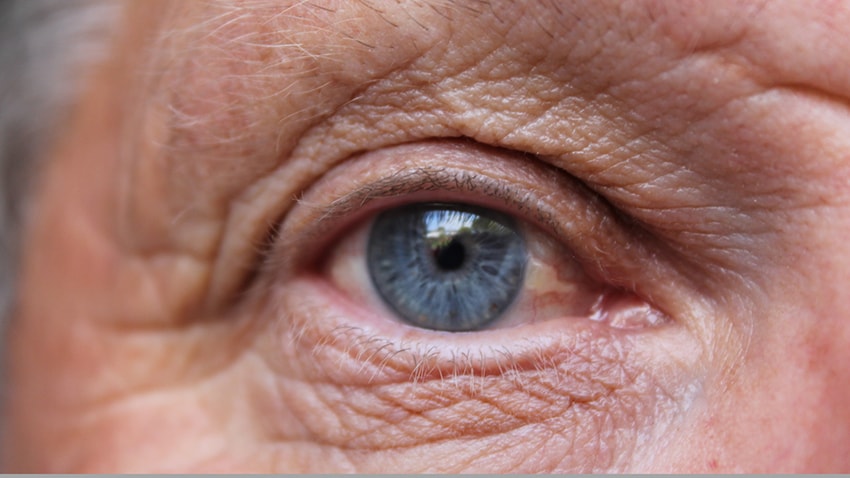February is Low Vision month and the number one disease of low vision is Macular Degeneration. Macular degeneration affects 4 million Americans of all ages, mostly in older adults. This is more than glaucoma and cataracts. Currently there is no cure for the disease.
Macular degeneration affects the centeral portion of the retina. This part of the eye carries images through the optic nerve to the brain so that we can read, and see images clearly. The center is called the macula and this controls our ability to drive a car, recognize faces and colors, read, and see objects in fine details.
There are two types of macular degeneration, dry and wet. 85 to 90 percent of macular degeneration are dry while 10 to 15 percent are wet.
Dry form is when you have yellow deposits called drusen in the macula
Wet form is when the blood vessels grow from underneath the macula which causes them to leak fluid and blood into the retina.

There are 3 stages of macular degeneration:
Stage one: Early AMD is when there is no experience of vision loss yet. Eye exams are vital because you want to catch it early.
Stage two: Intermediate AMD where there is some vision loss. A comprehensive eye exam that include specific tests are required for a diagnosis.
Stage three: Late AMD is when there is vision loss. This is where learning new tools and skills to cope are vitally important.
There are risk factors that contributes to someone being diagnosised with AMD (Macular Degeneration):
- Genetics, if you have a relative who has Macular Degeneration
- Race: caucasions develop Macular more often than African Americans or Hispanics.
- Smoking
- Eating a diet high in saturated fats
- Are over the age of 50
- Have hypertension
There are some lifestyle changes that will help you live well with Macular Degeneration. There are also supplements that will help your eyes and I even found the dosage that you should take of these supplements.
- Lutein: dosage of 10 MG’s a day
- Zeaxanthin: dosage of 2 MG a day
- Vitamin C: dosage of 500 MG a day
- Vitamin E: dosage of 400 IU a day
- Zinc Oxide: dosage of 80 MG a day
- Cupric Oxide: dosage of 2 MG a day
Other things that will help your eyes:
- If you can’t get the supplements eat foods that are high in Lutien and Zeaxanthin
- Be at a healthy weight
- Eat a nutritious diet
- Don’t smoke
- Keep a check on your blood pressure
- Exercise
- Wear sunglasses and hats to protect your eyes
- Get regular eye exams
- Consult a doctor if you notice any vision changes
Life throws us all curve balls when it comes to our health. And depression and feeling overwhelmed by a diagnosis is a normal thing to experience. There are some great support groups in the Cowlitz County areas that are great resources and I encourage you to reach out to them when you are ready. Karen Clemenson is also a great resource and can help encourage you with stop smoking and changing your lifestyle to better support better eyecare.
Here are some links I would like to share with you:
- Age-Related Macular Degeneration by WebMD Staff
- Age-Related Macular Degeneration (AMD) Data and Statistics by National Eye Institute Staff
- Healthy Living by By Bright Focus Foundation Staff
- Lower Columbia Council for the Blind on the Youth Directory at LinkingCowlitzCounty.org
- Vitamins for Age-Related Macular Degeneration: Do You Have the Correct Formula by Joshua Dunaief, MD, PhD at Scheie Eye Institute, University of Pennsylvania for Bright Focus Foundation
- What is Macular Degeneration? by Kierstan Boyd for the American Academy of Ophthalmology
- What is Macular Degeneration? by American Macular Degeneration Foundation Staff
- Related Articles
 Jamie Holloway lives in the Portland, Oregon area. Since October 2011 she has been sharing her Journey Toward Health and Wellness with Vasculitis through her blog at JamieChasesButterflies.com. As most of her articles will be about Men’s Health, Jamie intends to write her articles as though she was sharing important information with her brother, nephews and friends. We hope you are as inspired as we are with the raw candor Jamie uses in her writing. If you would like to help support Jamie’s writing efforts please Donate now.
Jamie Holloway lives in the Portland, Oregon area. Since October 2011 she has been sharing her Journey Toward Health and Wellness with Vasculitis through her blog at JamieChasesButterflies.com. As most of her articles will be about Men’s Health, Jamie intends to write her articles as though she was sharing important information with her brother, nephews and friends. We hope you are as inspired as we are with the raw candor Jamie uses in her writing. If you would like to help support Jamie’s writing efforts please Donate now.













